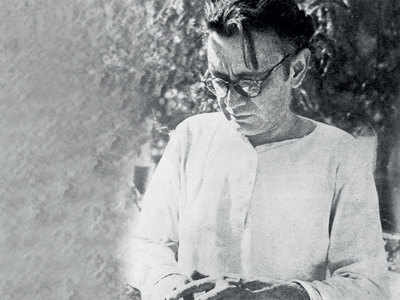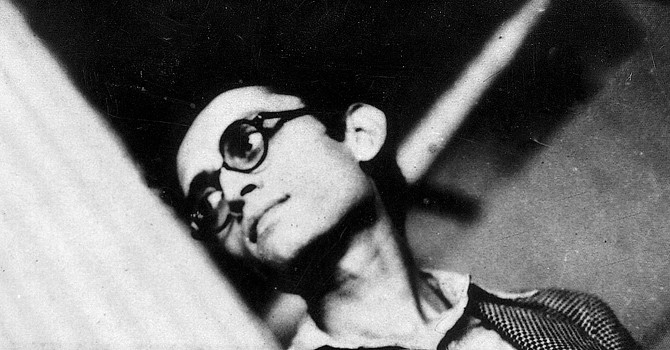The article below is a submission from our follower, Martina Thomas.
Saadat Hassan Manto, whom we know as Manto, is perhaps one of the greatest and most controversial writers of the sub-continent. If you are familiar with his work, you would know that when you end a story by Manto, you need a moment to either analyse yourself as part of society, or be amazed at how much you can relate to. Most of Manto’s work featured strong female characters and he often discussed issues women related issues. However, he also comments on issues regarding mental health, social barriers, human instinct, etc. Though Manto was a 20th century writer, what he wrote about then is still prevalent today. This is not only shocking but also disturbing. Manto was ahead of his time and that’s what makes him different. His work not only disturbs us, but also possesses the power to help us learn and do better.
Here is a list of 4 must-read stories by Manto that will surely make you realise that our society really hasn’t changed as much:

KHOL DO – (Open it)
T/W: rape, abuse
Set around the time of Partition, the story revolves around a father looking for his missing daughter. This story deals with the issue of rape. Manto, with this brilliant work of art, explains how abusers can abuse women anywhere, under any circumstance, and do not need a reason to abuse. Manto has also given his readers a view of the kind of trauma a victim experiences without even mentioning the victim’s perspective. He raised an important point by writing the part where the daughter’s dupatta falls to the ground, while she is escaping the chaos. Even under such a terrifying circumstance, the father is so concerned about it that he picks it up. He is probably aware that his daughter’s missing dupatta is going to create problems, even amidst this chaos. Truly relevant even today and extremely disturbing at the same time.
TOBA TEK SINGH
Toba Tek Singh is probably the first story that comes to mind whenever Manto’s name is mentioned. Set two to three years after the partition, the story revolves around Bishan, a Sikh, who is from Toba Tek Singh and is in a mental asylum in Lahore.
Even though this story discusses the partition process and is mainly about that, I feel like Manto’s elaborative way of showing us what happened inside a mental asylum during that time gives us an image of our society today. It appears as though he portrayed Bishan as the “common man.” Bishan has a wish – he wants to go to Toba Tek Singh but he can’t seem to have this wish fulfilled. This small wish of his, is shown as something he has the right to, yet he isn’t able to get.
Though Bishan and his inmates are shown as crazy people in the story, Manto sarcastically tells us that these crazy people are the ones who are actually sane. The protagonist is shown rightfully complaining throughout the story, yet nobody pays attention to him. His complaint in and out of the asylum is taken as just noise.

ARTIST LOG (Artists)
A story about two struggling and passionate artists who fall in love. This phrase itself would make you think about words like financial instability and demotivation. With this piece, Manto makes one thing very clear – artists were not appreciated back then as well. Art was and is something that’s counted as a hobby rather than a career. The story highlights the problems these individuals go through just because they chose a profession that doesn’t monthly pay them. One thing that a reader realises through this story is the fact that no matter how hard artists work, they will eventually give up on their dreams to escape starvation. We’ve seen artists starving and we’ve also seen young people giving up art for a job that does not interest them; but they do it anyway as it feeds them and is more respectable to society.
AULAAD (Offspring)
T/W: mental health, depression
Aulaad is one of those powerful stories where Manto shows a woman collapsing at the hands of a ruthless society. The story revolves around a woman named Zubaida who is unable to have a child after she gets married. She is constantly reminded of that, to a point where she begins to go insane. Manto discusses how family members fail to understand what another person is going through and just keep adding to the trauma. Every single day, Zubaida’s own mother makes her feel like something is wrong with her by reminding her that she doesn’t have any children of her own.
Right as the story begins, Manto mentions how Zubaida was supposed to get married at a younger age. However, she eventually gets married at 25 which was a bit late according to her parents. Manto raises a very prevalent issue in our society here – young girls begin stressing out about finding a decent man to marry just as they cross 20. They don’t think about this on their own, rather the society makes them feel useless and old.
The story is not just engaging, but also gut-wrenching and horrifying. After Khol do, if I have to mention a story’s ending that sent shivers down my spine, it would probably be Aulaad. Every aspect of the story still exists in our society and that’s not only concerning but also extremely terrifying. We haven’t changed at all.









What do you think?
You must be logged in to post a comment.